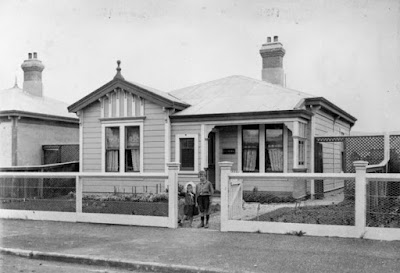The illegal truck stop that has North Jersey cops
at their wit's end
A
tractor-trailer parked on the shoulder on I-287 in Mahwah. Local officials say
despite their efforts to keep trucks from parking on the highway, truckers
still stop night after night.
MAHWAH — Every night, day after day,
hulking tractor-trailers line up here, on the shoulder of I-287, idling
for hours at this illegal truck stop.
The drivers come out to smoke as cars whiz past.
They stretch and rest on the extra-wide shoulder, just minutes from the New
York state line.
Despite tickets, signs and police patrols in
the area, the trucks return night after night. Mahwah officials, for their
part, say they are at their wit's end with the trucks, and that their efforts to
curb what they say is a dangerous situation have proven unsuccessful.
"We come along and move them but an hour later
they are back," Mahwah Chief of Police James Batelli said.
"We can't continue to allocate resources every night."
Trucks are banned from using the Garden State
Parkway north of exit 105, but a reader says he sees them driving on it anyway.
What's allow and what's not?
And when confronted, many drivers tell police
that they can't drive anymore because they have exceeded the amount of miles
they can legally drive in the day, Batelli said.
"If you don't arrive at a truck stop by 1 to 2
p.m. in New York or New Jersey you won't get a spot," Rick Toutges, a
truck driver from South Dakota, said Friday at the nearby Pilot truck
stop on Route 17. "We can only drive 11 hours a day, and when that's up we
can't go anymore because we'll get fined."
 |
| Highway America |
Kevin Johnson, a trucker from "the great state
of Michigan," agreed that it was dangerous to park illegally on the
side of an interstate, but also decried the fact that there's very little
parking for truckers.
"Look at where I'm at (now), squeezed in
here," Johnson said as his truck stood in a corner of the packed Pilot
truck stop. "They need to build more stops."
The shoulder of road where the trucks stop on 287
is particular dangerous due to steep inclines and the merging of the
highway from three lanes into two, Batelli said.
He said he would like the shoulder narrowed or
removed.
"This is truly a state problem," Batelli
said. "I wish the state took more engineering studies of the area."
A spokesman from the state Department of
Transportation said the agency has not heard from Mahwah officials about
the problem.
"There are a number of private rest stops
throughout the state that accommodate truck drivers," said Steve Schapiro,
communications director at the DOT. "It's important to remember that it is
unlawful to stop on the shoulders of state highways except for emergencies,
which makes this a law enforcement issue."
Batelli said State Police routinely patrol the
area, but the trucks return soon after they are moved . . .
Fausto
Giovanny Pinto may be reached at fpinto@njadvancemedia.com. Follow
him on Twitter @FGPreporting.








